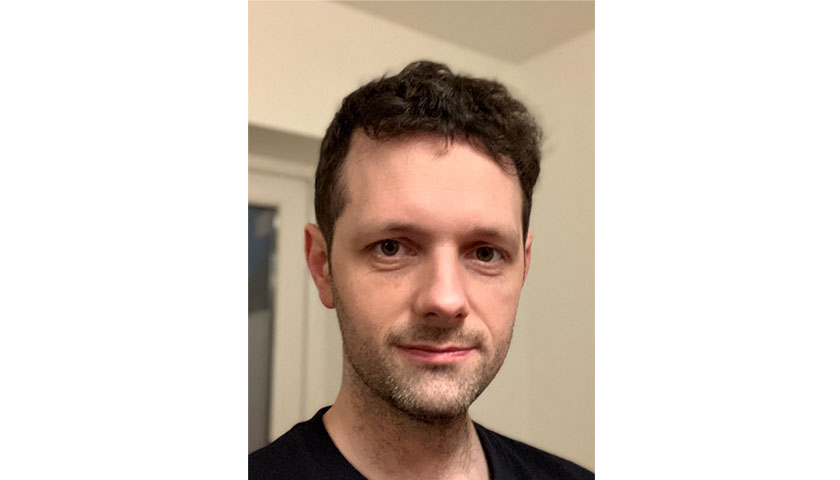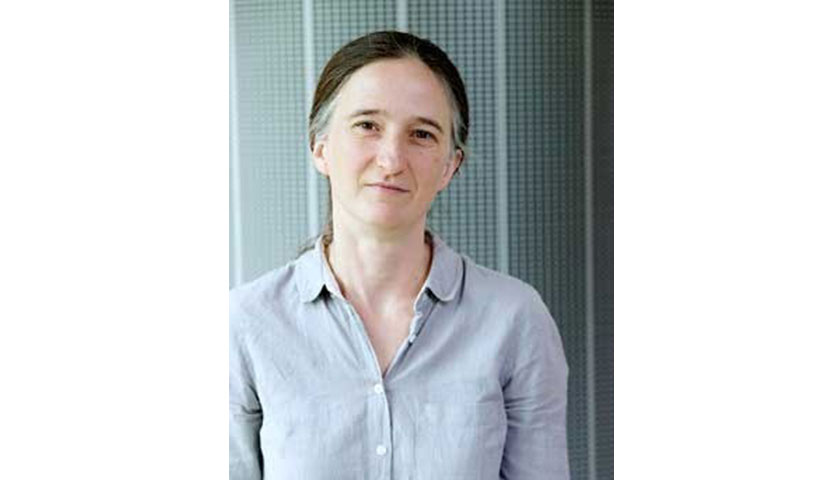Information about who will teach your course is correct at the time of publication. In some cases changes may be necessary and unavoidable, such as staff changes due to illness or leaving the University.
Overview
Top reasons to study with us
-
Engage with leading, socially-engaged academics
-
World Top 100 QS World University Subject Rankings 2025 (Arts & Humanities)
-
Develop critical thinking around a wide range of societal issues and concerns
World leading academics from across Lancaster's Faculty of Humanities, Arts and Social Sciences share the latest developments in this dynamic field.
How can the humanities play a part in creating an inclusive, trans-cultural and global healthcare that is fit for the future? Our innovative master’s in Global Medical and Health Humanities explores the forefront of knowledge and practices in medical and health environments around the world.
Join us as we expand the debate through new knowledge and collaborative leadership.
Why Lancaster?
- Discover the latest innovations and research insights in global medical and health humanities
- Develop critical, creative and cross-disciplinary approaches to health and medical challenges in global contexts
- Work with an interdisciplinary team with world-leading expertise in a diverse range of health research settings across the arts, humanities and social sciences
- Learn leadership skills that will equip you to navigate difficult decision-making
- Develop a practical and future-orientated understanding of how change is made
- Immerse yourself in Lancaster’s distinctive, collaborative environment
Cutting-edge approaches to well-being, illness and healthcare
The medical and health humanities are fast-evolving, interdisciplinary fields that marshal expertise in arts, humanities and social sciences to tackle healthcare challenges and drive positive future change.
The key values informing this exciting new field of study are interdisciplinarity, criticality, collaboration and creativity. A range of team-taught modules draw on the theories, methodologies and practices of humanities subjects. You will explore and address some of the major health and medical issues facing the world today and have the opportunity to contribute to cutting-edge health innovation.
Topics might range from addressing inequalities within health, exploring the need to create inclusive and diverse hospital environments, to engaging with difficult and sensitive issues such as sites of trauma, poverty and environmental crisis in healthcare settings.
You will develop critical and cross-cultural approaches to explore such areas as:
- Narratives and artistic expressions of mental health, illness and pain
- Sites of health activism and intervention
- The collaborative design of future spaces such as inclusive environments and hospitals fit for purpose
- The provision of health advocacy
- The de-colonisation of health, moving beyond Eurocentric, Anglophone perspectives
- Sustainability in healthcare
- Critical Disability Studies
- LGBTQIA+ healthcare
- Global histories of medicine and healthcare
Collaboration in practice
The School of Global Affairs offers two master’s degrees that share a common ethos and course structure. Each provides distinctive yet interconnected opportunities to develop the skills, knowledge, relationships and partnerships needed to meet the global challenges of our time.
You’ll take part in subject-specific modules designed to build in-depth knowledge of global medical and health humanities. You’ll assess, engage in and create responses to real world issues.
In studio modules you’ll work on live briefs and develop practical skills in using cutting-edge AI technologies, assessing ethical dimensions, and unpacking the societal costs and benefits.
On leadership modules, you’ll join with students from other master’s cohorts on projects and use generative, collaborative thinking to create innovative solutions that are relevant to diverse external stakeholders.
Working with students from our other cohorts will bring you into contact with those specialising in global sustainability and the environment. You’ll experience the benefits that harnessing skills and knowledge from diverse groups and subjects can bring.
You’ll have the opportunity to tailor your final project to draw on your academic, personal or professional experience and research ambitions. For example, if you are passionate about dis/ableism, representations of mental health in art practices or LGBTQI+ healthcare environments, you can explore these and many other topics during the course.
A range of innovative assessment types will give you the freedom to represent your chosen topic creatively and persuasively.
Leadership for the future of the world
With its dedicated leadership module, this course prepares you for a future as a collaborative change-maker. The course challenges traditional views of leadership. It adopts an understanding of inclusive leadership that is grounded in critical, creative and collaborative skills - a holistic and humanistic way of thinking.
By taking this interdisciplinary approach and engaging in the discourses of leadership ethics, you’ll be equipped to perform whatever role you take to bring about positive change.
You’ll benefit from the rich, collaborative environment in health innovation and research at Lancaster, being able to participate actively in research events and opportunities provided by the Faculty of Arts and Social Sciences Health Hub and the Queer Medical Humanities Network, as well as, beyond the Faculty, the health research ecosystem hosted at Lancaster's Health Innovation Campus.
Flexible study options
Study alongside work and other commitments by taking this course on a part-time basis. Running over two years, you take a selection of modules each year.
We will liaise with you over your choice of optional modules and your schedule, so that you can successfully balance your work and other commitments alongside the master’s programme.
Request information
Interested in master's-level study with us? Fill in our form and we will keep you up to date with course information, events and open days.
Tell me more about postgraduate study at Lancaster accordion
Careers
This course will appeal to those already engaged in a professional role as well as graduates wishing to move into a challenging but rewarding career where you can make a difference to the world. It is an opportunity to extend your prior educational and work experience in new directions.
The master’s is suitable for students from a wide range of academic backgrounds and careers who are keen to work in healthcare innovation anywhere in the world.
You may be interested in roles within:
- The Intelligence services
- Health Activism
- NGOs
- Health Advocacy
- Civil Service
- Health media and journalism
- Policy Making
- Healthcare and hospital design
- Research in the medical and health humanities
Careers and employability support
Our degrees open up an extremely wide array of career pathways in businesses and organisations, large and small, in the UK and overseas. Our specialist Employability team is ready to support you, whether you are starting out your career after leaving higher education or returning to university to open up new career options.
We provide individual employability advice, application support, career events, development opportunities and resources to help you plan and achieve your career goals. We also run a paid internship scheme specifically for arts, humanities and social sciences students.
The Lancaster Award is available to all postgraduate taught students and recognises work experience, volunteering and personal development alongside your studies. Developed with employers, it helps you reflect on key skills, boost your CV and articulate your strengths with confidence.
Whether you have a clear idea of your potential career path or need some help considering the options, our friendly team is on hand.
Find out more about Lancaster’s careers events, extensive resources and personal support for Careers and Employability.
Entry requirements
Academic requirements
2:2 Hons degree (UK or equivalent) in any subject.
Additional requirements
- A personal statement which should be a 300-500 word reflection on your interest in the programme, the relevance of your experience and what you hope to gain from the programme.
- The department plans to interview all eligible applicants.
English language requirements
We require an IELTS (Academic) Test with an overall score of at least 6.5, and a minimum of 6.0 in each element of the test.
We also consider other English language qualifications and if your score is below our requirements, you may be eligible for one of our pre-sessional English language programmes.
Help from our Admissions team
If you are thinking of applying to Lancaster and you would like to ask us a question, complete our enquiry form and one of the team will get back to you.
We also have more details on our website about:
Pre-master's programmes
Delivered in partnership with INTO Lancaster University, our one-year tailored pre-master's pathways are designed to improve your subject knowledge and English language skills to the level required by a range of Lancaster University master's degrees. Visit INTO Lancaster University for more details and a list of eligible degrees you can progress onto.
Course structure
We continually review and enhance our curriculum to ensure we are delivering the best possible learning experience, and to make sure that the subject knowledge and transferable skills you develop will prepare you for your future. The University will make every reasonable effort to offer programmes and modules as advertised. In some cases, changes may be necessary and may result in new modules or some modules and combinations being unavailable, for example as a result of student feedback, timetabling, Professional Statutory and Regulatory Bodies' (PSRB) requirements, staff changes and new research. Not all optional modules are available every year.
Core
core modules accordion
Develop your project management skills and practice at an advanced level.
In this innovative studio format, you will be given a live brief, and through hands-on learning, you will work with others in a group project to meet this brief. Your task will centre on how interdisciplinary humanities approaches can be applied to contemporary place-based challenges.
You will address these multi-dimensional challenges through a range of approaches, applying learning from your specific topic of expertise such as:
- Artificial intelligence
- Society and global challenges
- Sustainability and environmental futures
- Global medical and health humanities
Projects may be based on academically significant topics that will expose you to areas of contemporary research. Alternatively, they may be linked to ‘real world’ issues and external clients enabling you to develop your abilities in professional practice.
This project-based module will incorporate studio sessions with lectures from a range of disciplinary experts and external stakeholders, workshops to support practical skills and student-led group working in the studio space.
In this second studio format module, you will build on your first applied learning experience. You will move from contemporary place-based challenges to a focus on how interdisciplinary humanities approaches can be applied to global challenges that encompass multiple locales and contexts.
You’ll continue to develop project management and practice at an advanced level working on a live brief. Through further hands-on learning, you will work with others in a group project to meet this brief.
These multi-dimensional challenges will be addressed through a range of approaches as you apply learning from your specific topic of expertise such as:
- Artificial intelligence
- Society and global challenges
- Sustainability and environmental futures
- Global Medical and Health Humanities
Projects may be based on academically significant topics that will expose you to areas of contemporary research. Alternatively, they may be on issues put forward by external clients, enabling you to develop your abilities in professional practice.
This project-based module will incorporate studio sessions with lectures from a range of disciplinary experts and external stakeholders, workshops to support practical skills, and student-led group working in the studio space.
In this module you’ll gain a range of practical skills that are required to lead the development and implementation of innovative solutions to global challenges within education, academia, business and society. You will participate in workshops and work in self-directed Action Learning Sets which meet independently on a regular basis outside of the classroom.
Applying a critical, decolonial lens, you will reflect on your own position, prior learning and experience and connect these with ideas of leadership (and leadership ethics) in a range of contexts.
Our focus is a humanities-led approach to leadership, grounded in critical, creative and collaborative skills. You’ll be encouraged to take a holistic approach to the role of leadership in society, and humanistic thinking.
As well as theories of leadership and followership, you will learn skills for leadership and collaboration, which may include:
- Project and self-management
- Entrepreneurship
- Research and information literacy
- Communication
- Partnership building
The teaching and learning are designed to be flexible and prioritise self-directed study, enabling you to develop your own unique set of leadership skills and traits which will prepare you for a wide range of leadership roles, further study or a range of careers.
Explore and experiment with topics, ideas and methods which you will devise and design. The project will usually be a piece of individual work and can take a number of formats, which may include:
- A long form written dissertation
- A multi-media formatted project
- A creative intervention or a policy document
You will be supported by The School of Global Affairs to work collaboratively and to identify external partnerships through which to develop the project. You’ll be expected to draw on the multi-disciplinary aspects of your programme to devise critical, creative and future facing work.
Optional
optional modules accordion
While histories of war have long focused on the causes, course, outcome, and legacies of conflict, ‘new’ military histories also now seek to understand how ordinary people have experienced war ‘from below’.
Structured around four broad themes—medicine, the body, sexuality, and the mind—this module considers the bodily legacies of warfare in a variety of times and places.
Topics typically include:
- The role of the military in the emergence of clinical medicine in the 18th century
- The impact of war disability on society following the American Civil War
- The long history of rape as a ‘weapon of war’
- The use of methamphetamines by the German Wehrmacht in the Second World War
Drawing on a large range of sources, including diaries, memoirs, medical texts, engravings, photographs, and wartime propaganda, you will develop a detailed understanding of how people throughout history have experienced conflict and its aftermaths through their bodies.
On this module, you will encounter a series of intriguing texts that in one way or another explore the body. You will examine many models of the body, some old and some new, as well as such adjacent concepts as anatomy or flesh, and we will also be exploring the ways in which the texts we study work with, against and around those models.
You will be taught by several tutors who will present many very different and often competing models, including visions of the body as, variously, living, dying, political, prosthetic, gothic, suffering, fashioned, conscious, familiar, unfamiliar, fixed, unfixed.
Intercultural business communication plays a key role in the global economy and world commerce as it considers cultural differences between international business partners and clients. On this interdisciplinary module, you will examine how communication is affected by different values, attitudes and beliefs, in the context of volatile, uncertain, complex and ambiguous environments.
You will learn how to effectively interact, work and develop meaningful relationships with professionals across different cultures and social groups: essential skills in a global workforce.
Drawing on interdisciplinary research,you’ll gain the necessary awareness, know-how and practical skills needed to become more effective at intercultural interactions. You will use various models to analyse your own experiences and develop a personal development plan to address effective interactions at work in the face of significant challenges. Studying intercultural business communication will foster an understanding of your own cultural, linguistic and communication related background. This may benefit future careers that operate within a multicultural context.
Study a language formally in a way that will support your learning. You can enrol either as a beginner or as a more advanced student where you will build on existing knowledge.
In the seminars and workshops, as well as through a series of optional drop-ins offered later in the module, you’ll get the tools you need to approach materials which are relevant to your own academic and work interests.
You will be given opportunities to practise in your chosen target language, building on materials posted on the learning space (flipped classroom videos, self-study links) as well as other events organised for the community of linguists and language learners in the University, such as our weekly lunch clubs.
On this module you will develop transferable communicative skills and reflect on cultural and linguistic challenges which are relevant to your postgraduate studies and beyond.
You may use these skills to research matters relating to intercultural and/or interlinguistic issues, work with archives, develop an international research network, or simply add them to your CV.
Metaphor has become a focal point of research in linguistics and cognitive science where, far from an occasional literary fancy, it is recognised as a fundamental cognitive process that shapes our thoughts and actions in almost all aspects of life. This module introduces you to the latest theories, methods and applications of metaphor research.
You’ll be introduced to contemporary theories of metaphor beginning with conceptual metaphor theory before moving to developments in the idea of metaphor scenarios, as well as discourse dynamic and mental simulation approaches to metaphor. Through these frameworks, you’ll explore the creative and the cognitive functions of metaphor and see how metaphors are expressed in different modes of communication, including language, image and gesture.
You will engage with methods for identifying and classifying metaphors in discourse, testing the psychological reality of metaphors, and measuring the effects of metaphors on people’s attitudes and beliefs.
Toward the end of the module, you’ll explore several areas where metaphors really matter, including in connection with politics, health and the environment.
On this module you will undertake an in-depth study of key issues in the philosophy of mental health. Topics will vary from year to year, but may include:
- The nature of mental health and disorder
- The conceptual foundations of psychoanalysis
- Classification in psychiatry
- Conceptualising cultural variations
- realism and constructionism about mental disorder
- Meaning and the limits of reduction, responsibility and disorder
Fees and funding
| Location | Full Time (per year) | Part Time (per year) |
|---|---|---|
| Home | £12,190 | £6,095 |
| International | £25,320 | £12,660 |
Additional fees and funding information accordion
There may be extra costs related to your course for items such as books, stationery, printing, photocopying, binding and general subsistence on trips and visits. Following graduation, you may need to pay a subscription to a professional body for some chosen careers.
Specific additional costs for studying at Lancaster are listed below.
College fees
Lancaster is proud to be one of only a handful of UK universities to have a collegiate system. Every student belongs to a college, and all students pay a small College Membership Fee which supports the running of college events and activities. Students on some distance-learning courses are not liable to pay a college fee.
For students starting in 2025, the fee is £40 for undergraduates and research students and £15 for students on one-year courses.
Computer equipment and internet access
To support your studies, you will also require access to a computer, along with reliable internet access. You will be able to access a range of software and services from a Windows, Mac, Chromebook or Linux device. For certain degree programmes, you may need a specific device, or we may provide you with a laptop and appropriate software - details of which will be available on relevant programme pages. A dedicated IT support helpdesk is available in the event of any problems.
The University provides limited financial support to assist students who do not have the required IT equipment or broadband support in place.
Application fees for 2026
There is no application fee if you are applying for postgraduate study starting in 2026.
Paying a deposit
For some of our courses you will need to pay a deposit to accept your offer and secure your place. We will let you know in your offer letter if a deposit is required and you will be given a deadline date when this is due to be paid.
The fee that you pay will depend on whether you are considered to be a home or international student. Read more about how we assign your fee status.
If you are studying on a programme of more than one year’s duration, tuition fees are reviewed annually and are not fixed for the duration of your studies. Read more about fees in subsequent years.
Find all fees and funding information for students at Lancaster University.
Scholarships and bursaries
You may be eligible for the following funding opportunities, depending on your fee status and course. You will be automatically considered for our main scholarships and bursaries when you apply, so there's nothing extra that you need to do.
Unfortunately no scholarships and bursaries match your selection, but there are more listed on scholarships and bursaries page.
If you're considering postgraduate research you should look at our funded PhD opportunities.
| Scheme | Based on | Amount |
|---|---|---|
| Based on {{item.eligibility_basis}} | Amount {{item.amount}} |
We also have other, more specialised scholarships and bursaries - such as those for students from specific countries.
Browse Lancaster University's scholarships and bursaries.
Similar courses
Postgraduate online subject taster sessions - Wednesday 22 April
Join us online to hear about postgraduate study at Lancaster, and choose a taster session based on your intended subject.
Book an online taster session
Important information
The information on this site relates primarily to the stated entry year and every effort has been taken to ensure the information is correct at the time of publication.
The University will use all reasonable effort to deliver the courses as described, but the University reserves the right to make changes to advertised courses. In exceptional circumstances that are beyond the University’s reasonable control (Force Majeure Events), we may need to amend the programmes and provision advertised. In this event, the University will take reasonable steps to minimise the disruption to your studies. If a course is withdrawn or if there are any fundamental changes to your course, we will give you reasonable notice and you will be entitled to request that you are considered for an alternative course or withdraw your application. You are advised to revisit our website for up-to-date course information before you submit your application.
More information on limits to the University’s liability can be found in our legal information.
Our Students’ Charter
We believe in the importance of a strong and productive partnership between our students and staff. In order to ensure your time at Lancaster is a positive experience we have worked with the Students’ Union to articulate this relationship and the standards to which the University and its students aspire. Find out more about our Charter and student policies.








